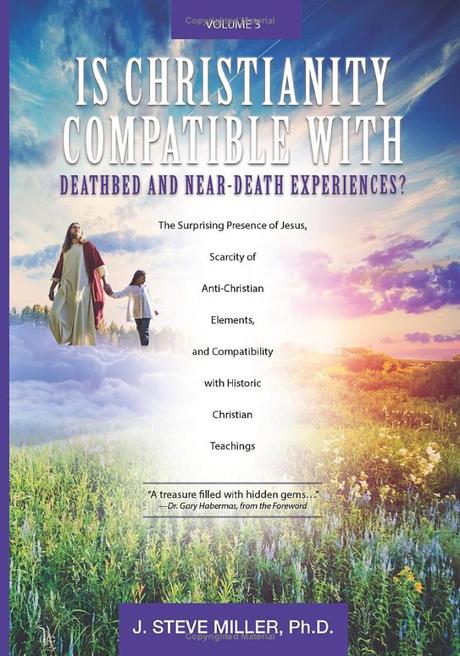
Are you interested in what happens to us after our bodies die? If so, then this book is a great resource.
We’re going to bring many assumptions to this subject. Maybe we are involved with one of the world’s religions, or perhaps our background is completely secular. I think this book will be relevant for everyone, whichever worldview we are personally starting from. (1)
We’re all coming with different assumptions, yet we’re all going to die one day. So, it is very helpful to read Miller’s careful assessment of the data gathered from people in two main groups. First, those who have not yet reached their final death, but apparently have had a sneak peek into what comes next (NDE). Second, those who had surprising encounters as their final death approached them (DBE). Various professional studies have been done on these phenomena. In this book, Dr Miller focuses on the Near Death Experience Research Foundation (NDERF) database and assesses the experiences recorded there. He balances the data entered by medical professionals with reports from the general public, and assesses both in an even handed way.
Dr Miller has two strengths that he brings to this book. First, his rigorous and curious approach to the world. He’s not trying to confirm what he thinks he already knows. He’s genuinely looking at all the data he can find that seems to relate to what happens for ordinary people as they approach death. Second, he is incredibly generous in his scholarship. I can see that generosity in the extensive reference list he provides. But I can also see it in the way he forms his arguments. His rigor is matched by kindness, tentativeness, and accessibility. It’s a joy to read, and I never felt railroaded as I assessed his arguments in the book. But I did leave wanting to know more.
He covers a lot of ground, and so inevitably, Dr Miller cannot go into depth on every area he explores. For example, his treatment of the problem of evil in chapter 17 is very brief indeed. There is much more that can be said here, and some readers may feel their own issues with evil and suffering are not addressed. Yet perhaps a comprehensive treatment of this area is not really Miller’s goal. There are other resources that he points to that do that job. I think in this book, he helpfully faces the common complaint that life sometimes just does not make sense to us. He illustrates this problem by referring to the death of his first wife when she was very young. He then sketches out an argument to suggest that NDE’s point to a divine love and justice that will only be fully known and understood by us after our final death. I think this is helpful in two ways. Dr Miller might be breaking some new ground with this argument, and he is also laying helpful groundwork for future scholars to run with. Generosity again.
Are you skeptical about NDEs and DBEs based on your religious or secular commitments? Why not read Dr Miller’s book, and then come to your own opinion based on both the data and the inferences that he draws from it.
(1) J Steve Miller, Is Christianity Compatible With Deathbed and Near-Death Experiences? : The Surprising Presence of Jesus, Scarcity of Anti-Christian Elements, And Compatibility with Historic Christian Teachings, https://www.amazon.com/gp/product/B0CFYCWKHB/ref=ppx_yo_dt_b_d_asin_title_o00?ie=UTF8&psc=1.
